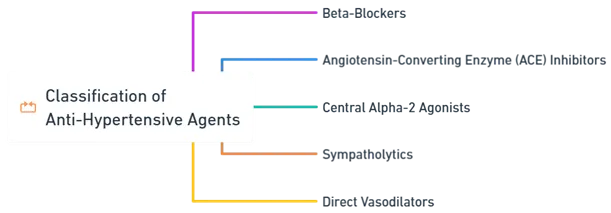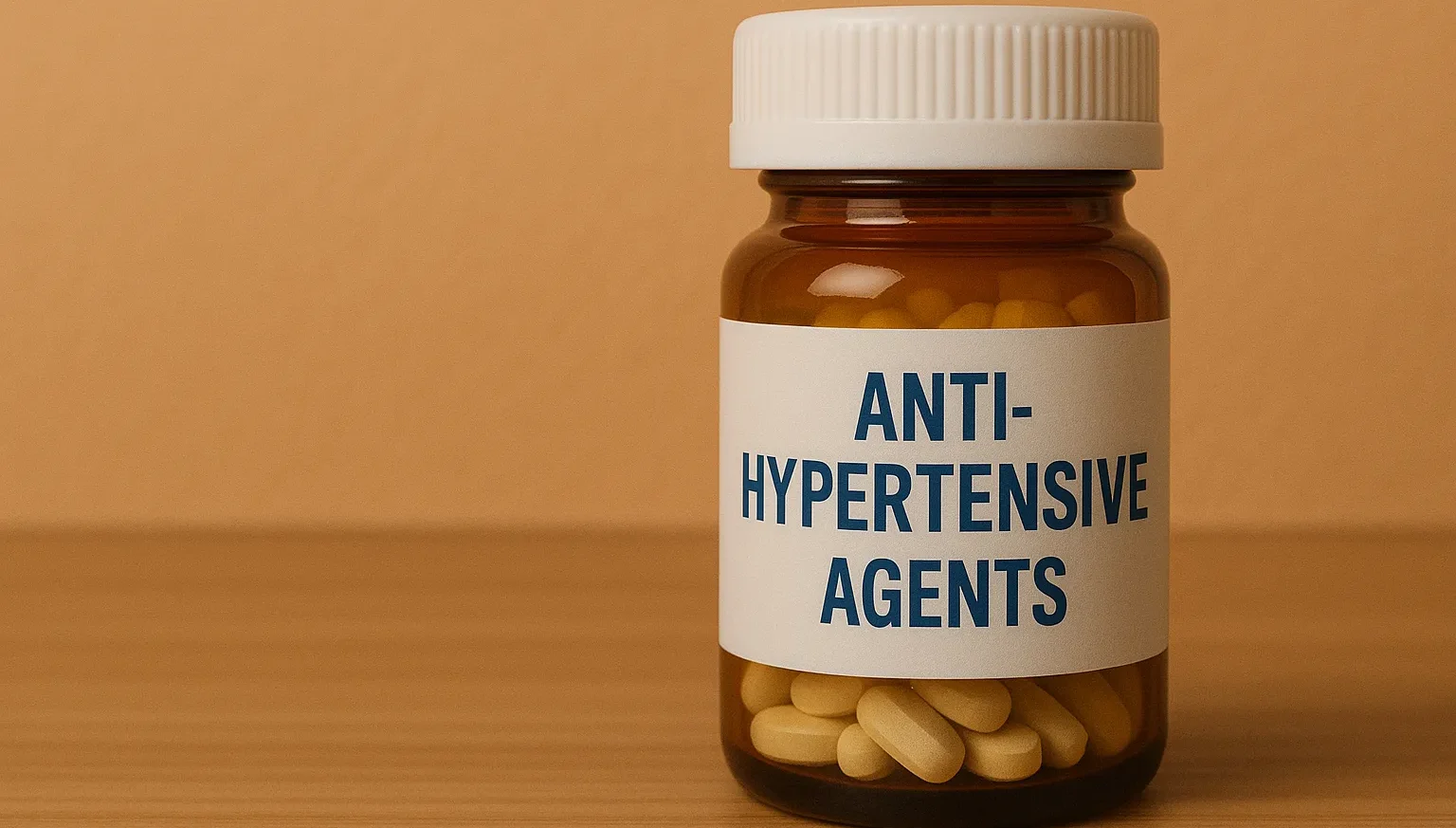Anti-Hypertensive Agents are drugs used to lower high blood pressure and reduce the risk of heart attack, stroke, and kidney disease.
- Anti-hypertensive agents are drugs used to manage high blood pressure (hypertension).
- They work through various mechanisms to lower blood pressure and reduce the risk of complications like heart attack, stroke, and kidney failure.
Advertisements
Classification of Anti-Hypertensive Agents

1. Beta-Blockers
- Mechanism: Reduce heart rate and cardiac output by blocking β-adrenergic receptors.
Advertisements
2. Angiotensin-Converting Enzyme (ACE) Inhibitors
- Mechanism: Inhibit the conversion of angiotensin I to angiotensin II, leading to vasodilation and reduced aldosterone secretion.
3. Central Alpha-2 Agonists
- Mechanism: Activate alpha-2 adrenergic receptors in the brain, decreasing sympathetic outflow and reducing blood pressure.
- Clonidine Hydrochloride
- Methyldopate Hydrochloride
Advertisements
4. Sympatholytics
- Mechanism: Inhibit the sympathetic nervous system through various pathways, leading to decreased vascular resistance and heart rate.
5. Direct Vasodilators
- Mechanism: Directly relax vascular smooth muscles, causing vasodilation and reducing peripheral resistance.
- Hydralazine Hydrochloride
- Minoxidil
- Sodium Nitroprusside
- Diazoxide
Summary Table
| Class | Mechanism | Medications |
| Beta-Blockers | Block β-adrenergic receptors; reduce heart rate and output | Timolol |
| ACE Inhibitors | Inhibit conversion of angiotensin I to II; vasodilation | Captopril, Lisinopril, Enalapril, Benazepril HCl, Quinapril HCl |
| Central Alpha-2 Agonists | Activate alpha-2 receptors; decrease sympathetic outflow | Clonidine HCl, Methyldopate HCl* |
| Sympatholytics | Inhibit sympathetic nervous system | Guanethidine Monosulphate, Guanabenz Acetate, Reserpine |
| Direct Vasodilators | Directly relax vascular smooth muscles | Hydralazine HCl, Minoxidil, Sodium Nitroprusside, Diazoxide |
Click Here to Watch the Best Pharma Videos
Advertisements

